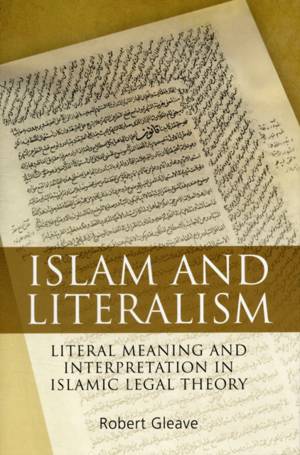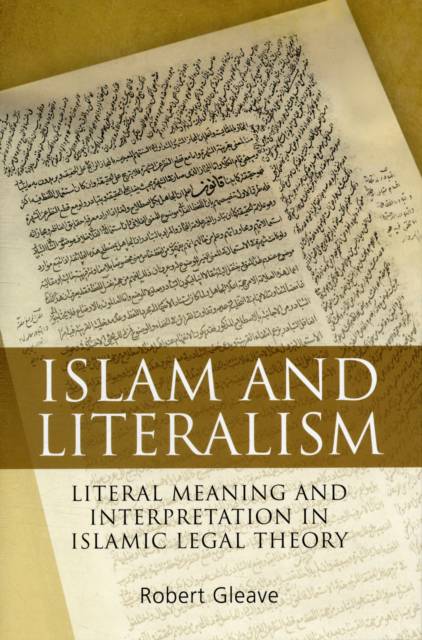
- Retrait gratuit dans votre magasin Club
- 7.000.000 titres dans notre catalogue
- Payer en toute sécurité
- Toujours un magasin près de chez vous
- Retrait gratuit dans votre magasin Club
- 7.000.0000 titres dans notre catalogue
- Payer en toute sécurité
- Toujours un magasin près de chez vous
Islam and Literalism
Literal Meaning and Interpretation in Islamic Legal Theory
Robert GleaveDescription
Literal meaning is what a text means in itself, regardless of what its author intends to convey or the reader understands to be its message. The idea of literal meaning, together with insights from modern semantic and pragmatic philosophers, informs this reading of Islamic legal hermeneutics.
Robert Gleave explores various competing notions of literal meaning, linked to both theological doctrine and historical developments. The idea of a text's literal meaning that rules over human attempts to understand God's message has become an element in discussions about who has the authority to interpret the revelatory texts, and how they can identify this meaning. This has resulted in a series of debates over the processing of legal meaning amongst modern Muslim legal theorists, which centre on the importance of defining, identifying and promulgating the literal meaning of the central texts of Islam.
Focuses on Islamic legal writings, with reference to Quranic exegesis (tafsir) and Arabic rhetorical worksDescribes Muslim debates through the lens of modern Western linguistic philosophyStructured chronologically along the lines of the development of Muslim conceptions of literal meaning
Spécifications
Parties prenantes
- Auteur(s) :
- Editeur:
Contenu
- Nombre de pages :
- 256
- Langue:
- Anglais
Caractéristiques
- EAN:
- 9780748625703
- Date de parution :
- 26-07-12
- Format:
- Livre relié
- Format numérique:
- Genaaid
- Dimensions :
- 163 mm x 236 mm
- Poids :
- 521 g

Les avis
Nous publions uniquement les avis qui respectent les conditions requises. Consultez nos conditions pour les avis.






